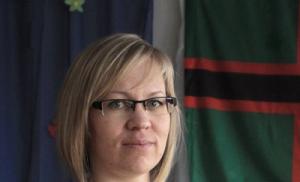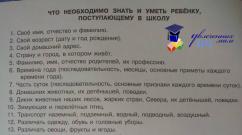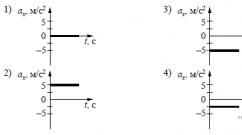Who is the huntsman. Jaeger profession
There is an opinion that the job of a huntsman is one of the most romantic in the world. Ask an uninitiated person what the huntsman is doing, and he will answer: he lives, lucky man, in a forest hut in the bosom of nature, walks along the paths with a gun, meets and communicates with all kinds of animals, and in the mornings and evenings birds sing serenades to him. Oh, the error came out! In order to see the animals in his round, the huntsman has been trying for years to first lure them to him, then breed, and then feed, protect from a multitude of people who are hunting for profit. In order to find funds for the construction of all the numerous feeders, feeding areas, observation towers (and this is also the huntsman's duty), this worker conducts hunts for the guests, thereby bringing income to the hunting farm. The huntsman has no time to sit in his gatehouse (which simply does not exist). Day after day, all year round, without days off and holidays, in frost and heat, snow, rain and drought, the huntsman disappears in the forest, in the wilderness, racking his brains all day and night how to preserve all the wealth entrusted to him.

Safety at stake
The oldest gamekeeper GOLKHU Vileika experienced forestry Ivan Apanasevich has seen everyone for fifteen years of impeccable service, so he can judge his profession with an open mind and without an excessive amount of romanticism. According to him, the duties of the gamekeeper are the most versatile and vary depending on the season. In the fall, when driven hunting for hoofed animals opens, the huntsman has to work four days a week with teams of 10-20 hunters who have come to visit the forestry. In this case, Ivan Iosifovich takes on the functions of the head of the hunt and takes responsibility not only for the success of the event, but also for the safety and life of the guests. He gives instructions, monitors the observance of safety measures, often showing severity to excessively gambling shooters.
“My task is to make sure that all hunters go home vigorous, healthy and unharmed, with the idea of visiting the hunting farm again,” says the huntsman. - While hunting, I am actually the face of the leshoz. The rating of the economy depends on my actions.
There are enough organizational difficulties in Ivan Apanasevich's work.
- For example, recently guests from Russia came. They treasured their time, so they decided to take maximum benefit and emotions from the visit. In the morning we went on a driven hunt, almost all day disappeared in the fields. In the dark, we also decided to conduct an individual hunt. In the evening, the guests rested and gained strength before a sleepless night, while the team and I sat and wondered how not to lose our face in the mud. And then - an alarming night ... My wife rarely sees me at home in the evenings, she even wonders when I still break out of the forest.
The gamekeeper could only dream about the weekend if he could afford a full sleep. If Ivan Iosifovich is not busy hunting, he carries out preparatory work - he travels around the grounds, studies the tracks of animals, determines in which quarter they are in order for the hunt to be successful. A lot of experience helps in this matter. The huntsman can almost infallibly determine where the herd of wild boars lies, and where the deer or elk graze.
- For example, now it is quite warm, high humidity, which means that the wild boar will keep to lowlands. The corn was removed from the fields - the animal moved further into the forest. He keeps close to feeding areas, but does not approach them - there is no snow, - Ivan Apanasevich gives an impromptu master class.
.jpg)
Not by hunting alone
At the end of the calendar year, the driven hunting season will end, there will only be an individual one, from an approach, from an ambush. But not only hunts, as they say, the huntsman is full. Winter is a difficult time for all living things in the forest. Deep snow threatens with lack of food, so the animals need to be fed. In conditions of deep snow cover, not every feeder or feeding area can be reached by transport in order to bring food - grain, root crops, and so on. From time to time the gamekeeper has to leave the car, get on skis and overcome the snowdrifts with a sack of grain on his shoulders - not an easy daily work! And along with frosts, formidable predators - wolves - come to the soul of hoofed animals. And here the huntsman is on the alert, ready to protect the herbivores.
Spring brings its surprises, to which Ivan Iosifovich was not used to it for all fifteen years of his work.
- You need to feed the animals until the snow has completely melted. If some feed trough runs out of food, they must be replenished, - explains the huntsman. - And the snow will melt, then the frost will grab. It turns out such a multi-layer virgin land, on which neither the car nor the tractor will pass. I remember there were cases when the frost and snow finally squeezed the beast, he only hoped for the help of a person. I had a horse, I sat in the saddle, loaded a couple of sacks of grain there and, for many kilometers through deep snow, without taking roads, delivered food to wild boars. It was even worse when the food had to be carried on one's own shoulders. But the beast was never left without support. This is the law. So this spring, after the memorable hurricane Javier, they only got to the feeding areas on a snowmobile or on their own feet ...
Summer is gentle only for the lazy. The huntsman does not have enough time to bask in the sun - he begins to prepare for ... winter: to update feeding grounds, feeders, salt licks and observation towers, repair shooting posts, sawing and mowing shooting lines and sighting lines. All this work is also done by the hands of a simple huntsman. And above it - the burning sun, around - humidity, not the slightest breath of breeze among the trees. Only clouds of mosquitoes and horseflies curl, sting so that without a protective mesh on your face you can't stand a minute.
“The audibility in such conditions, when the foliage rustles and the vile ringing around, is terrible,” Ivan Iosifovich notes. - Well, only it would create discomfort for me! It is much worse that even the beast hears poorly, and dishonest people try to use it - more often there are attempts to poaching ...
Yes, it is also the huntsman's duty to protect animals from poachers. During his service, Ivan Iosifovich more than once grabbed such people by the hand, although, he admits, there were cases and dangerous, on the verge of a foul.
- This winter, as I remember now, on Sunday, I traveled around my lands in a service UAZ. My wife asked for a raid with me (she herself is the daughter of a forester, she loves nature very much, often accompanies me in the forest: we read the tracks of animals, then we observe wild boars from the tower, then we sneak up on the elk). We drove up to the feeding area and heard shots on the border of my detour. Interesting, I think, hunting is not conducted on my territory, not otherwise poachers! He went to the sounds himself, and ordered his wife to wait in the car. Where there! She followed me, so we detained one of the shooters. The second escaped, but then he confessed himself ...
) and a serviceman (private) who has it, light infantry of the armed forces of many states of the world.
Story
Name "Huntsmen" first encountered in the Thirty Years' War.
"Huntsman" translated from German Jäger means "hunter". In the Prussian army gamekeepers(recruited from the sons of foresters and hunters) proved to be effective in the Seven Years' War. For operations on rough terrain, not slender closed ranks were needed, but small detachments of dexterous and well-aimed shooters, capable of acting alone. In the Russian army, on the model of the European ones, divisions of light infantry were created. “The grenadiers and musketeers rip with bayonets,” said Suvorov, “but they shoot gamekeepers". In M.I. Golenishchev-Kutuzov developed "Notes on the infantry service in general and especially on the ranger."
In culture
The song "In the thirty-first year we ..." is dedicated to the Russian huntsmen who participated in the suppression of the Polish national uprising of 1830-1831.
see also
- Wehrmacht airborne forces (rangers-paratroopers)
- Chasseurs - French analogue of gamekeepers
Write a review on the article "Huntsman"
Notes (edit)
Links
- // Military encyclopedia: [in 18 volumes] / ed. VF Novitsky [and others]. - SPb. ; [M.]: Type. t-va I.V. Sytin, 1911-1915.
- Program "Military". on youtube
An excerpt characterizing the Huntsman
Once again it pushed from there. The last, supernatural efforts are in vain, and both halves opened silently. It has entered, and it is death. And Prince Andrew died.But the instant he died, Prince Andrew remembered that he was asleep, and the instant he died, he, making an effort over himself, woke up.
“Yes, it was death. I died - I woke up. Yes, death is awakening! " - suddenly brightened in his soul, and the veil, hiding the unknown until now, was raised before his soul's gaze. He felt, as it were, the release of the force previously bound in him and that strange lightness that had not left him since then.
When he woke up in cold sweat and stirred on the sofa, Natasha went up to him and asked what was wrong with him. He did not answer her and, not understanding her, looked at her with a strange look.
This was what happened to him two days before Princess Marya's arrival. From that day on, as the doctor said, the debilitating fever took on a bad character, but Natasha was not interested in what the doctor was saying: she saw these terrible, more certain for her, moral signs.
From that day began for Prince Andrey, together with awakening from sleep - awakening from life. And in relation to the duration of life, it did not seem to him more slowly than awakening from sleep in relation to the duration of a dream.
There was nothing scary and abrupt in this relatively slow awakening.
His last days and hours passed in an ordinary and simple way. And Princess Marya and Natasha, who did not leave him, felt this. They did not cry, did not shudder, and lately, feeling this themselves, they no longer went after him (he was no longer there, he left them), but after the closest memory of him - behind his body. The feelings of both were so strong that the external, terrible side of death did not affect them, and they did not find it necessary to indulge their grief. They did not cry either in his presence or without him, but they also never spoke about him among themselves. They felt they could not express in words what they understood.
They both saw how he deeper and deeper, slowly and calmly, descended from them somewhere there, and both knew that this was the way it should be and that it was good.
He was confessed, given the Holy Communion; everyone came to say goodbye to him. When they brought his son to him, he put his lips to him and turned away, not because it was hard or sorry for him (Princess Marya and Natasha understood this), but only because he believed that this was all that was demanded of him; but when they told him to bless him, he did what was required and looked around, as if asking if there was anything else to be done.
When the last shudders of the body, abandoned by the spirit, occurred, Princess Marya and Natasha were here.
- Is it over ?! - said Princess Marya, after his body had already been lying motionless for several minutes, growing cold, in front of them. Natasha came up, looked into the dead eyes and hurried to close them. She closed them and did not kiss them, but venerated what was the closest memory of him.
All dictionaries Ushakov's Dictionary Etymological Dictionary of the Russian Language Dictionary of Forgotten and Difficult Words of the 18th-19th centuries Dictionary of hunting terms and expressions Encyclopedic Dictionary Ozhegov's Dictionary Efremova's Dictionary Brockhaus and Efron Encyclopedia
Etymological Dictionary of the Russian Language
German - Jager (hunter).
This word entered Russian vocabulary in the 18th century.
According to researchers, it was borrowed from the German language and was originally used to refer to a lackey accompanying a landowner on a hunt. The modern meaning of the word "huntsman" is "hunter".
Derivative: gamekeeper.
Dictionary of Forgotten and Difficult Words of the 18th-19th Centuries
, I am , m.
1. Soldier of special cavalry and foot infantry regiments in a number of European armies.
* [Napoleon] galloped towards Kovno, preceded by enthusiastic guards horse rangers... // Lev Tolstoy. War and Peace // *
2. Professional hunter.
* The count, out of envy that I shoot him better, spent a whole month drinking me with wine. ... He took and in revenge he married you drunk. Rangers on the cowgirl!// Chekhov. Huntsman //. *
encyclopedic Dictionary
(from German Jager - hunter), an official in the hunting grounds of Russia; hunter specialist serving amateur hunters. Monitors compliance with the rules of nature management and hunting laws.
Ozhegov Dictionary
E GER, I am, pl. gamekeepers, gamekeepers and huntsmen, to her, m.
1. Professional hunter (obsolete).
2. Hunting specialist is a specialist in the organization of hunting, protection and reproduction of fauna.
3. In some armies: soldiers of special rifle regiments.
| adj. jaeger, oh, oh.
Efremova's Dictionary
- m.
- An employee of a hunting farm or a nature reserve in charge of hunting and protecting the lands and animals living in them.
- :
- outdated. A hired hunter who participated in the royal, royal hunt.
- Servant at the royal, royal court, engaged in the preparation of the hunt.
- Soldier of special infantry - foot and horse - regiments (in the army of the Russian state and the armies of some other states in the 18th-19th centuries).
Encyclopedia of Brockhaus and Efron
sometimes hunter(from German jäger - hunter) - a hunting servant in a gun hunt. The duties of the gamekeepers are: 1) supervision of the hunting economy in the hunting grounds; 2) preparation and arrangement of hunts; and 3) provision of appropriate services to hunters in the production of hunts. The duties of the first kind include: protecting the land, personally and through the watchmen, from unauthorized hunting by unauthorized persons; feeding in winter some birds and animals (mainly gray partridges and wild goats); extermination of non-hunting predators, such as hawks, cats, and observation of watchmen, hunting buildings and all hunting accessories in general. Duties of the second kind are in training and coaching dogs, in finding grouse and capercaillie currents (see), convenient places for woodcock and duck traction (see), broods and dumping of game, in laying around bears, moose, wolves and other animals, in hiring beaters (screams) for round-ups and in the round-up device itself. E. must provide assistance to hunters with excellent knowledge of the matter and the terrain and the earliest possible search for game in conditions convenient for shooting. Between E., over the past twenty-five years, they have gained high fame in Russia for the special method of rounding up animals. Pskovites or lukashi, originating from the village of Ostrov, Pskov province, and receiving their second name from their ancestor, the Old Believer of the Bezpopovshchina consent, Luka, the father of Izot Lukich, who invented the Pskov method of hunting. The advantages of this method are that the Pskovians, having learned all the skills of animals (mainly wolves and foxes), quickly lay them around and three of them, one in the middle, the others on the sides, drive them to a predetermined place on the hunter. Pskovites are usually hired by artels of three people and in winter they receive up to 100 rubles each. in the month of salary (see details in the article. Dmitriev-Mamonov, in the "Journal of Hunting" for 1874 and 1875; V. N. G.'s note, in the journal "Nature and Hunting" for June, 1884). On the basis of the rules on hunting, approved by the Highest on February 3, 1892, E. free hunting certificates are issued; upon their approval in the rank of hunting watchmen, they are exempted from corporal punishment and, in relation to the prosecution of violators of hunting laws, enjoy all the rights granted to the guard of state forests.
WITH. Bezobrazov.
The human need at all times is communication with wildlife, in which the inner world is filled with a sense of calmness, silence and harmony. Happy is he who has love for the world around him and its protection combined in his main work with the vocation and meaning of his whole life.
Jaeger and forester - the first defenders of forestry
The forestry workers are professionally engaged in the protection of the flora and the care of our smaller brothers: a huntsman and a forester. The similarity of these professions lies in the maintenance of one territory, with the only difference that the huntsman is responsible for the animal world, the forester monitors the forest, controlling The work of the huntsman is not particularly difficult - it seems so at first glance.
Often these are former hunters, not by hearsay familiar with all the intricacies of communication with wild animals. A specialized education for forestry work is of course considered a preferred factor, but not as important as the skills available.
Jaeger as a profession
The huntsman, whose home is actually the forest, has the following duties:
- control over the hunting grounds entrusted to him and the events taking place on them;
- ensuring the safety of animals listed in the Red Book;
- maintaining the number of commercial animals;
- shooting sick and aggressive specimens in order to eliminate the possible danger to the local habitat;

- artificial regulation of over-breeding, which causes crowding and hunger in the wild. For this, in addition to a good knowledge of all types of animals, the huntsman has to show mathematical abilities to account for forest dwellers. Using special formulas, he makes an approximate count of individuals of each species all year round. This is required to control the natural balance and the validity of the number of licenses issued for the production of a particular type of animal.
Daily hard work
A huntsman is a person who does not know weekends or holidays, whose work takes up most of the time: from early morning to late evening.
The winter season, threatening with serious cold weather and deep snows, is hard for not only humans, but also animals. The equestrian huntsman during this period tries to provide the wild animals with additional food, delivering, and sometimes carrying heavy bags of feed (grain and root crops) on his own shoulders. Moreover, this hard work sometimes has to be done daily, until the very end of the snow drifts; after all, in difficult times, wild animals can rely solely on human compassion and help.
It would seem that the period of frost and cold should be compensated for by carefree and restful summer days. In fact, this is not the case.

The hot months under the scorching rays of the sun and endless mosquito bites are the peak of preparations for the winter: repair and renovation of feeders and feeding grounds, as well as procurement of feed and salt licks. The latter are reserves of table salt, usually arranged in stumps and troughs from fallen trees, in places where animals pass to water. Salt, which improves metabolism in the body and increases its vitality, contributes to the optimal assimilation of rough winter food, causes an increase in the fertility of females and the normal development of young animals. Also, salt knocks down the increased acidity, which is formed from the consumption of ungulate needles, and in the summer, when inhaled, it relieves animals from other forest flies.
Hunting organization
The autumn period brings worries related to the opening of the hunting season and its end. A huntsman is a person who coordinates work with teams of hunters and has excellent organizational skills aimed at the success of the enterprise and the safety of guests, namely, organizing a productive hunt and a comfortable overnight stay. As the owner of the forest, the huntsman thoroughly possesses invaluable experience and knowledge about the behavior of the animal, its bedding and location at the required moment. He can also almost accurately determine where an elk or a deer graze, and where a herd of wild boars lies.

Therefore, hunting, always rich in prey, evokes positive emotions in the guests and an irresistible desire to return to these places more than once. An integral part of the safari is the evening campfire bikes, true and not very true, which are an invariable tradition and unite completely different people.
Hunters, both beginners and seasoned ones, always adhere to 3 unspoken rules:
- Respect the animal being hunted. Do not shoot females and process even the smallest piece of meat.
- Observe safety precautions.
- Be anxious about the weapon, in no case direct it at other participants in such a fascinating process.
Anti-poaching
A normal hunter is always characterized by a sense of personal responsibility, morality and morality, which does not allow mercilessly destroying animals for the sake of money. The same cannot be said about poaching, the fight against which, both in the forest and on the river, is the most dangerous part of the work that the huntsman performs.
This is illegal shooting of animals, jamming of fish with explosives and electrolysis, generating a current of several thousand volts, which leads to the extermination of representatives of the fauna and has been an inexhaustible problem for many years. The huntsman often goes around the territory of the reserve on weekends: it is on these days that poachers are likely to visit the forest. When meeting with a poacher, the gamekeeper's rights are allowed to check the documents of the latter and draw up a protocol fixing a criminal violation. Despite the strengthening of control over the activities of poachers, the latter manage to work ahead of the curve, using modern baits and special electronic devices. Poachers behave differently when detained. Some calmly react to the fact of detection red-handed, realizing the severity of what is happening and admitting their own guilt. Others begin to threaten and scandalize; in this case, the huntsman can threaten with a service weapon.

Poaching - global and unpunished
Poaching is pushed by the opportunity to earn money: badger fat is very highly valued on the market, which provokes the merciless destruction of badgers. The high cost of hunting licenses, as well as their limited number for certain types of animals, are also incentives to commit illegal activities.
The impunity of poachers, whose representatives are often the "powerful of this world", makes the defender of the forest sometimes defenseless against them. The minimal fine, which reaches the point of ridiculousness, in comparison with the carcass of a killed animal, only instills in the fauna destroyer a feeling of complete impunity. The huntsman is, first of all, the protector of our smaller brothers, characterized by helplessness against the terrible force of arms.
Public duties of the gamekeeper
In addition to the main activity, the huntsman's duties include working with the local population: this is also an explanation of new laws, meetings with schoolchildren in order to teach the correct norms of behavior in the forest and conduct orientation and educational excursions. This also instills in the children the desire to learn the profession of a huntsman, whose work is mostly based on great enthusiasm: after all, who will protect nature, besides ourselves?
Low salaries in the forestry sector, poor material and technical base are just the usual obstacles that hinder painstaking work. Working as a gamekeeper is a great pleasure from communicating with nature and living side by side with it, which brings incomparable happiness and encourages a person to complete dedication and great love for all living things.
I grew up in one of the settlements of the Voronezh region, the border of which ran along the edge of the Savalsky forest. As boys, in our free time from household chores, we visited the forest every day.
In the summer they ran to a pond called Lesnoy, played Cossack robbers. In the autumn, we took part in a “quiet hunt” with the whole friendly company, collecting mushrooms and berries. And in winter, in the daytime, while skiing, we rolled up a rather long and winding track. And every time we visited the forest, we met various animals on our way. Either the fox runs through the clearing into the next block, or the badger clumsily flies into the hole. We often met roe deer and sika deer, as well as decent broods of wild boars with striped piglets. We were amazed by the smooth paths that cut through the forest, the pillars at their intersections and the strange ones were swept away on the trees. "Brand!" - familiar hunters told us. And even then we had a question, who is doing all this and why? Forest, land, fields, game - these are natural resources and the joy of the hunter. All this does not exist by itself, but there are people who guard, protect, observe animals, take them into account, regulate the number both in special farms and in public hunting grounds.
In the team of the state hunting fund there is such a person - a huntsman. Most hunters are of the opinion that the hunter is a hunter who guards forest lands and everything that is in them. Others think that the huntsman is the main figure in various hunts and without his participation hunts are not allowed. Almost all of these concepts - huntsman - are correct and close to the text, but it is worth recalling that huntsman, first of all, is a position.
At the end of the 19th century, hunters, who were engaged in hunting, on the basis of the "Rules for hunting" approved on February 3, 1892, were issued free hunting certificates. When they are approved in the rank of hunting watchmen, where they are exempted from corporal punishment and in relation to the prosecution of violators of hunting laws, they enjoy all the rights granted to the guard of state forests.
The gamekeepers were assigned no less than two tasks, such as: supervision of the hunting economy in the hunting grounds; preparation and arrangement of hunts, provision of appropriate services to hunters in the production of hunts.
The duties of the first kind included: the protection of land, personally and through the watchmen, from unauthorized hunting by strangers; feeding some birds and animals in winter; extermination of non-hunting predators, such as hawks, cats; observation of the watchmen and hunting buildings and of all hunting equipment in general.
Duties of the second kind consisted in training and coaching dogs, in finding grouse and capercaillie currents, convenient places for woodcock and duck traction, broods and dumping of game, in enclosing bears, elks, wolves and other animals, in hiring beaters for roundups and in the very device of roundups ... The hunters were supposed to provide assistance to the hunters, having excellent knowledge of the matter and the terrain and the fastest search for game in conditions convenient for shooting. Good orientation in the terrain and excellent shooting.
From history: the word huntsman comes from the German "Jager" - a hunter, a shooter, a hunting servant in a gun hunt. Jaegers in the Russian army represented light infantry, consisting of excellent shooters, which were the hunters. In Russia, the huntsmen first appeared in 1761 under the military statesman P.A. Rumyantsev, who formed a special battalion of hunters with the task of supporting light cavalry in forests, villages, on passes, as well as organizing ambushes, suppressing the enemy with accurate shooting and surprise. In 1769, jaeger teams were established at the infantry regiments. In 1785, all the Jaeger battalions were abolished, and the Jaeger Corps were formed from among them. When Alexander I came to the throne in Russia in 1812, there were 50 army jaeger regiments in the Russian army. They were called Jaeger units due to the presence of most of the hunters there, and the weapons of that time were imperfect, and the army needed well-aimed arrows.
In the twentieth century, at the state hunting inspections in 1956, a huntsman service was organized throughout the territory of the RSFSR. The tasks of this service and the duties of the gamekeepers were determined by the temporary regulations on the gamekeepers, approved by the Main Directorate of Hunting Economy and Reserves.
In the XXI century, the powers of a huntsman are determined in accordance with the Order of the Ministry of Natural Resources of the Russian Federation of April 27, 2001 No. 369 "On officials of the Ministry of Natural Resources of the Russian Federation exercising powers to protect, control and regulate the use of wildlife and their habitat", as well as Article 31 of the Federal Law "On Animal World". A gamekeeper of a hunting farm can have any rights established by his job description, but, of course, he cannot be equated with a hunting inspector or, moreover, a police officer. The huntsman of a private organization (hunting farm) cannot draw up protocols or confiscate weapons.
As we can see, the huntsman has a lot of responsibilities, although, I don’t argue, they are, of course, interesting. In order to successfully complete everything, the huntsman has plans and maps of his site, on which they are applied: a permanent route for the summer registration of feathered game, animal paths, pastures and other feeding places for wild animals, watering holes, salt licks, burrows, places of current and nesting places for birds, the presence of broods and other information collected during spring, summer and autumn, places of concentration of animals and birds in winter, points of placement of baits and feeding grounds, location of winter salt licks, storage places and amount of stored food, acorns, pine and beech nuts, berries, grain waste and agricultural products and other feed. The huntsman is obliged to enter the completed work and his observations in the huntsman's Diary, which serves as a reporting document on his work. The reporting periods are month and year.
In addition, each huntsman must know the regulatory and legal framework (regulations, orders, orders, instructions (local regulations) on hunting management and hunting supervision) and other guidance documents that determine the actions of an official in the hunting industry.
And if we speak in simple and accessible language, the task of the huntsman is as follows: "Preservation, replenishment, regulation of the" herd "size and provision of good quality feeding, which allows keeping the livestock in difficult winter conditions." Almost everyone who works as a gamekeeper is a gamekeeper at heart. For the conscientious fulfillment of his duties and the realization of his rights, a real huntsman does not have weekends and holidays and non-working hours at the end of the working day.
The huntsman Ershov Alexander Fedorovich, who worked in the Savalsky forest, always talked very enthusiastically and with knowledge of the matter about the livestock, hunting, deaths, sanitary shooting. From conversations and rounds with him, I always learned a lot of new and interesting, imbued with love for nature and our Russian vast expanses. With the help of Alexander Fedorovich, a person was born in me with a careful attitude to the lands and native nature.
I know a lot of such professionals in my work. They fulfill all the points of the duties listed above in full, and maybe more. I am not an expert and not a civil servant of the protection of natural resources, in order to professionally evaluate the work of a huntsman, I am a simple hunter. But, being on hunting in various hunting grounds in different cities of our vast Motherland, I can give an independent assessment to each hunting farm. Starting with a meeting of arriving hunters, bringing them security measures, checking the relevant documents, hunting rules, getting to know the hunting grounds, the habits and behavior of the animal and everything that is necessary for a successful hunt for everyone who is a real hunter. And it all depends on one person - the huntsman.
In general, a huntsman is a way of life, because in the Siberian forests there are huntsmen who never retire, live in a forest house and pass on their profession by inheritance, from generation to generation. They know everything about their land, talk to animals and trees, and with them our world becomes, at least not a little, but better! I just want to say: "There is such a profession - to protect nature!"













